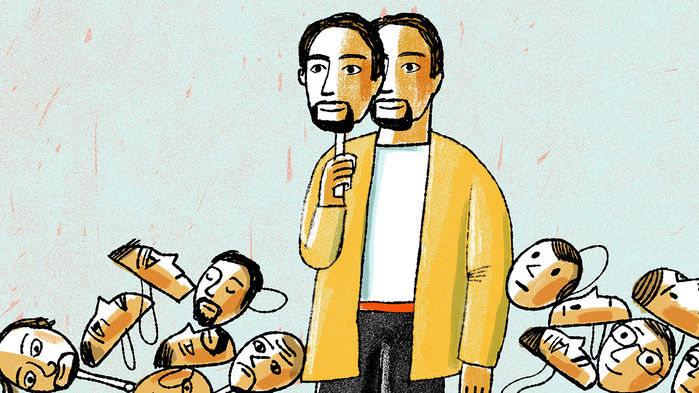By Artaza Gilani
Science, April 11, 2019.
A year ago, I had one of the most significant interviews of my life. It was for a job I had worked toward for years, as a medical doctor doing research and teaching along with treating patients—a rare and highly competitive type of post in the United Kingdom. Toward the end of the interview, I was asked how I would balance the different parts of the role. I had expected this question and had thought about how I would answer. Still, I hesitated. I could say what I thought the members of the interview panel wanted to hear: I’m good at multitasking, prioritizing, and delegating, and I was confident that I would be able to juggle the various responsibilities. That would have been true—yet it didn’t feel authentic. The more honest answer was that I knew it would be difficult, but I wanted to try anyway. I wasn’t sure which answer to give.
I faced a similar problem 12 years earlier, when I applied to medical school. I was only 17 years old, and my education had left me believing that there were only right and wrong answers, especially in exams. In my mind, the interview was an exam—it, too, had right and wrong answers. But I didn’t know what they were. No one in my family was a doctor. I come from the wrong side of the tracks, as they say. I had worked my way into a decent local school and done well in my classes, but I didn’t speak the way my classmates did—or the way I imagined doctors did.

So, I found model answers on the internet, which put my mind at ease. But when I tried to use these answers as templates, it felt fake, as if I was trying to be somebody I wasn’t.
This tension led me to stumble during the interviews. My own answers competed in my mind with those I’d found from other sources. The wires crossed on at least one occasion, when an interviewer asked me to give an example of a time when I had been caring. The answer that came to mind was that I volunteered at a nursing home and felt privileged to sit with the residents and listen to their stories. But I didn’t think that was dramatic enough to impress the interviewers. So, instead I told them about when one of the residents got sick and I cleaned it up. I immediately felt embarrassed. That wasn’t caring; that was basic cleanliness and hygiene, and it suggested that my best quality was skill with a mop. Right then and there, it was clear to me that trying to come across as someone other than myself was not the right approach.
“Trying to come across as someone other than myself was not the right approach.“
My next interview attempt came a few years later, for a position I would start after medical school—a clinical job with a small academic research component. I wasn’t sure what the panel was looking for, but I felt I had little to lose: New doctors in the United Kingdom are almost guaranteed a “normal” clinical job somewhere in the country, and I hadn’t expected to be invited to interview for this more specialized position in the first place. So I was satisfied to present myself as I am, not as who I thought the panel members wanted me to be. I didn’t second-guess myself. My answers were just that—they were mine. I was at ease and genuinely enjoyed the experience. And I was offered the job.
Fast-forward to my most recent interview and the question about how I would juggle the multiple responsibilities of the role. I hesitated—but not for long. I had learned the importance of being true to myself. So I answered simply: “With difficulty.”
To my surprise and relief, the review panel members nodded knowingly and chuckled. They seemed to relate and to appreciate my candor and willingness to show my human side. I started the job a few months later.
I’ve come to realize that interviews don’t have “right” or “wrong” answers. I still see them as exams, but they’re not testing my ability to rehash somebody else’s answers. The answers were always easier than I thought, because the exam is about something I am well acquainted with: me.
Artaza Gilani is an academic clinical fellow of the National Institute for Health Research School for Primary Care Research at University College London












